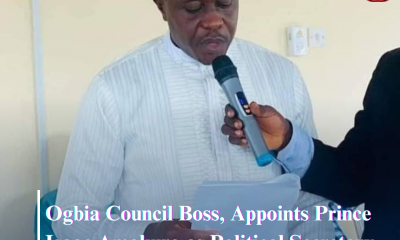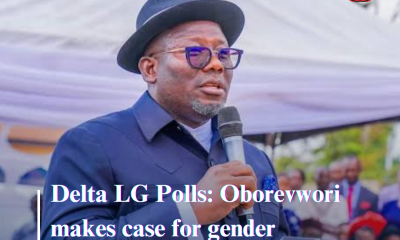News
2023 polls could place Nigeria’s Economy in stagnation – Experts warn

A retrospective look at Nigeria’s business sector in 2022 shows a mix of too ugly and not too good, as experts say with the forthcoming election and change of government billed for 2023, the sector would likely stagnate.
A rewind of 2022 and how the Nation’s business sector fared pictures a period marred by inflation, high unemployment rate, poverty, insecurity, unfavourable foreign exchange regime, Naira depreciation against other currencies, high energy cost, slow Gross Domestic Product growth, fuel scarcity, flooding, oil theft conundrum, high-interest rates, soaring public debt, and the Naira redesign policy with its attendance implications.
Inflation jumped from 15.60 per cent in January 2022 to 21.47 per cent in November. The figure represents an increase of 5.59 per cent in a one-calendar year. In comparison with November 2021, the figure was higher at 6.07 per cent variation. The implication was far-reaching for many Nigerians as food prices soared in the period under review. Little wonder, 133 million, representing 65 percent of Nigerians, were reported by the National Bureau of Statistics, NBS, to be multidimensionally poor. The World Bank also corroborated the state of deprivation of Nigerians when it disclosed that five million had been pushed into poverty in 2022 amid a slump in purchasing power by a whopping 35 per cent.
The economic miseries experienced by Nigerians in 2022 got worse, with a 33 per cent unemployment rate, according to the NBS’s September data. The insecurity in the North East, West, South East and indeed every part of Nigeria created a fearful business environment leading to loss of jobs, business shutdown and poor patronage.
Still, the CBN’s foreign exchange management regime, flooding, fuel scarcity, high energy cost, high-interest rates, and Naira Depreciation further exacerbated the suffering of most Nigerians due to the harsh economy.
Foreign exchange has remained a full-blown crisis in Nigeria, with the gap between what is obtainable in the official foreign market and the parallel market (Black market). For instance, in January, Naira against one dollar stood at N415/1$ at the official rate, while the black market rate was N567/1$. Today the situation is worse; the official rate stands at 448.8/1$ while the black rate is N737/1$. The problem is still affecting businesses and Nigerians whose transactions are forex-dependent
-

 News3 days ago
News3 days agoFamily, Friends Celebrate Jailed Former Deputy Senate President, Ike Ekweremadu’s Birthday
-

 Politics3 days ago
Politics3 days agoPROPHESY TO PRESIDENT BOLA AHMED TINUBU ABOUT 2027
-

 Niger Delta6 days ago
Niger Delta6 days agoNiger Delta Stakeholders Accuse Olu of Warri and PINL Management of Dishonesty Over Terminated Pipeline Contract
-

 Politics7 days ago
Politics7 days agoOgbia Council Boss, Appoints Prince Isaac Amakuro as Political Secretary
-

 News7 days ago
News7 days agoBaraza executes court order, removes properties from Becky father’s residence
-

 Business4 days ago
Business4 days agoBaraza: Bribena pleads for understanding, highlights solutions to organization’s problems
-

 Business6 days ago
Business6 days agoWema Bank Unveils CoopHub, Nigeria’s First Digital Platform for Cooperative Societies
-

 Politics7 days ago
Politics7 days agoDelta LG Polls: Oborevwori makes case for gender inclusiveness




